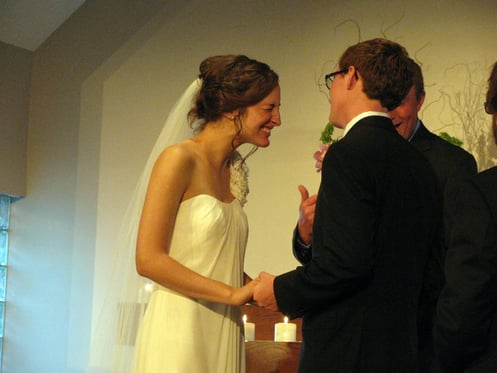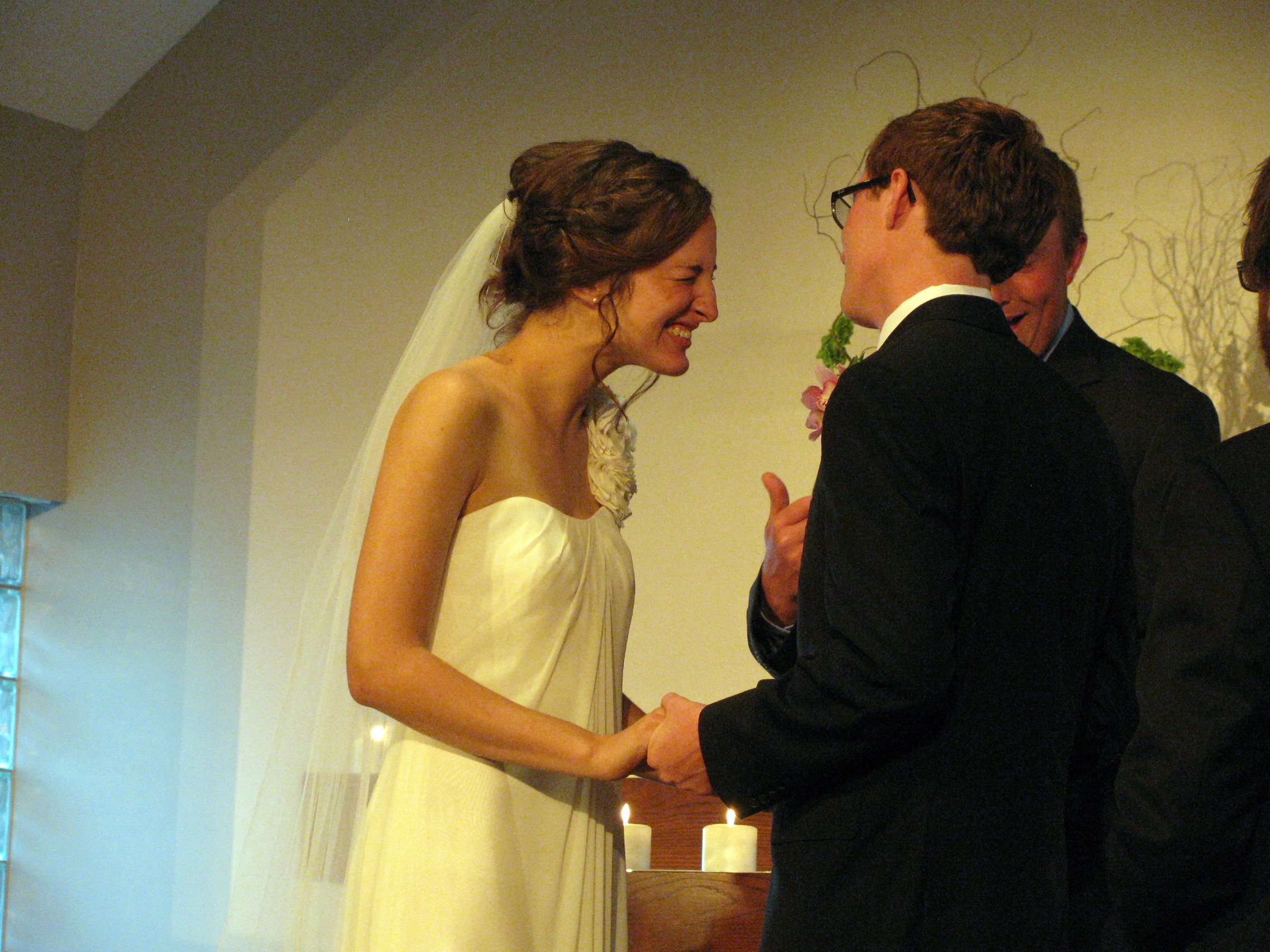
Cross-posted at Notes from a Small Place, where I've had several posts related to marriage lately, hence the disclaimer below.
Disclaimer: I kinda-sorta want to apologize to people who find so many marriage posts annoying or are bothered by sentimentality. But I say "kinda-sorta" because really I want you to abandon your cynicism so you can recklessly throw yourself into the joy. So this is a half-disclaimer that is part apology and part a call to repentance for your skepticism. Sometimes there is no trick. The wizard isn't hiding behind the curtain. He's right in front of you. Things really can be that good.
At the end of The Last Battle as the Pevensie children join Aslan in the New Narnia the lion-hero looks at them and says, "You do not look so happy as I mean you to be." Much of the time, that is our experience in the world: We do not look so happy as our gracious father means us to be.
And yet there are days when New Creation - wholeness, grace, and joy - come crashing into the old. When you're standing next to one of your best friends, a guy you've been to war with many times over and will continue to stand by forever, and watch as the chapel doors open and his bride walks down the aisle toward him... you feel New Creation breaking in. You see the cracks forming in the foundations of a broken world and you know someday the house will come crashing down.
Login to read more
Sign in or create a free account to access Subscriber-only content.
